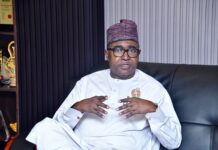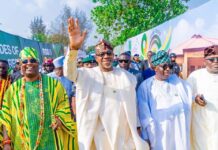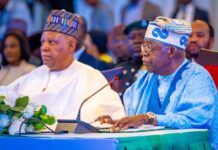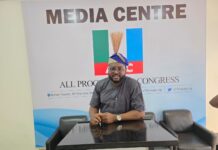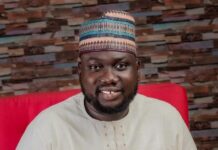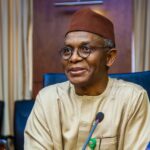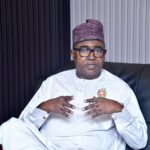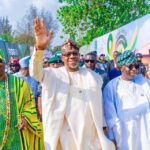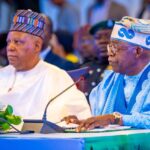In 2019, following the passage of the #NotTooYoungToRun law, which lowered the eligibility criteria, for public office in Nigeria and the general election that followed, out of the 991 seats in the 36 state House of Assemblies, only 20 members were between the ages of 25 and 30. In the House of Representatives, only 21 members out of the 360 members were below the age of 39. In the Senate there was no young person under 40, the closest was the Senator from Adamawa North, Elisha Abbo, who was already 43 at the time.
In the same year, United Nations Population Fund (UNFPA) in its World Population Report, observed that Nigeria’s population grew progressively from 54.7million in 1969 to 201 million people. In addition to the report, demography tracker, Statista, revealed that Nigeria’s median age is 18.4years, making the country one of the youngest populations globally. By comparison, the median age of European union countries is 44, while that of North America is 38, Japan and Singapore, two leading East Asian countries, have their median age as 48.4 and 44.8 respectively. A cursory look, shows that Nigeria is truly blessed with a young, energetic and mobile population that will power the growth of the future.
Despite Nigeria’s large youth population, for several years, the political leadership, has failed to reflect this demographic reality in diversity and policy. Instead, what you have is a system that recycles leaders by design but deploys young people only as political hangers-on, thugs or in some cases social media charlatans.
If there is any lesson that the #NotTooYoungToRun law has taught us, it is that, when a law is not backed by the means, it can be rendered ineffective. The means in this context is solely that of political will. I have consistently argued that the old political order have a responsibility to deliberately mainstream youth participation, and mentor young people into the leaders of today, who can take on greater responsibilities tomorrow. This is what is described in monarchy as succession planning, but of course in this event, it is beyond succession planning, it is the right and democratic thing to do. The simple idea of democracy suggests that all groups should be fairly and equitably represented and none must be excluded.
Despite our lamentation, I think my home state, Kwara, especially offers a shining example for other sub-national governments. Kwara has backed its commitment to youth inclusion, with necessary policy action and institutionalised its previous effort. The affirmative law of 2021 which was passed by the state Assembly, mandating either gender to occupy a minimum of 35 percent in the state cabinet, is the first to be signed into law by any sub-national in Nigeria. The law especially excites me, because I recall that in June 2021, during one of the media rounds, build up to my book presentation, I explained that the next phase for #NotTooYoungToRun is affirmative action.
Just last week, I read about the appointment of Ms. Nafisat Buge Musa, a 26-year-old, social campaigner and youth activist, who recently completed her National Youth Service Programme, as the Commissioner for youth development. I was delighted even, to read rave reviews about the young woman, from different users on social media, including the commentary of my Igbomina sister, Ms. Titilope Anifowose who could not hide her admiration for the young lady’s “fashion sense”. In one of the Twitter commentaries, one user commended her verve and charisma, adding that she is articulate and speaks quite fluently. This is exactly the point, the appointment of young people into government usually creates excitement within the youth base, but even more than the excitement is that it serves as an inspiration for other young people, and a reminder that everything they can dream is possible.
Ms. Buge’s appointment is coming only weeks after my friend and brother, Ishola Kayode, more informally called “Kaybaba”, was appointed as the Special Assistant to the Governor on Digital Innovation, and celebrated academic, Dr. Lawal Olohungbebe, as the Senior Special Assistant on Community Development. Before now, we have also seen other young people who are under 35 come through the ranks, notably Abdulquawiy Olododo, Commissioner for Solid minerals; Damilola Yusuf, Commissioner for Business Innovation, Usman Lade, Commissioner for Water Resources, Segun Ogunshola, Commissioner for Housing and Urban Development and a number of other young people who are either serving as Special Assistants, Special Advisers, Head of Agencies, or even as Commissioners.
Pray that going forward, the current level of youth inclusion in Kwara must be the acceptable minimum at any level of government or political party administration. The same level of inclusion must be demanded from other sub-national governments, to take a cue from Kwara, which has now become the gold standard and reference point in youth governance. Politicians must also be reminded at all times, that our young people are more valuable than political thuggery, they must mentor them to take up active roles in leadership.
More than any other time in our history, we must translate the creativity and inventive capacity of our young people in music, movies, sports and technology into a vital resource for energising our leadership and transforming our great nation, Nigeria.
- Seun Awogbenle, a Development and Public Policy Professional, writes from the United Kingdom.







